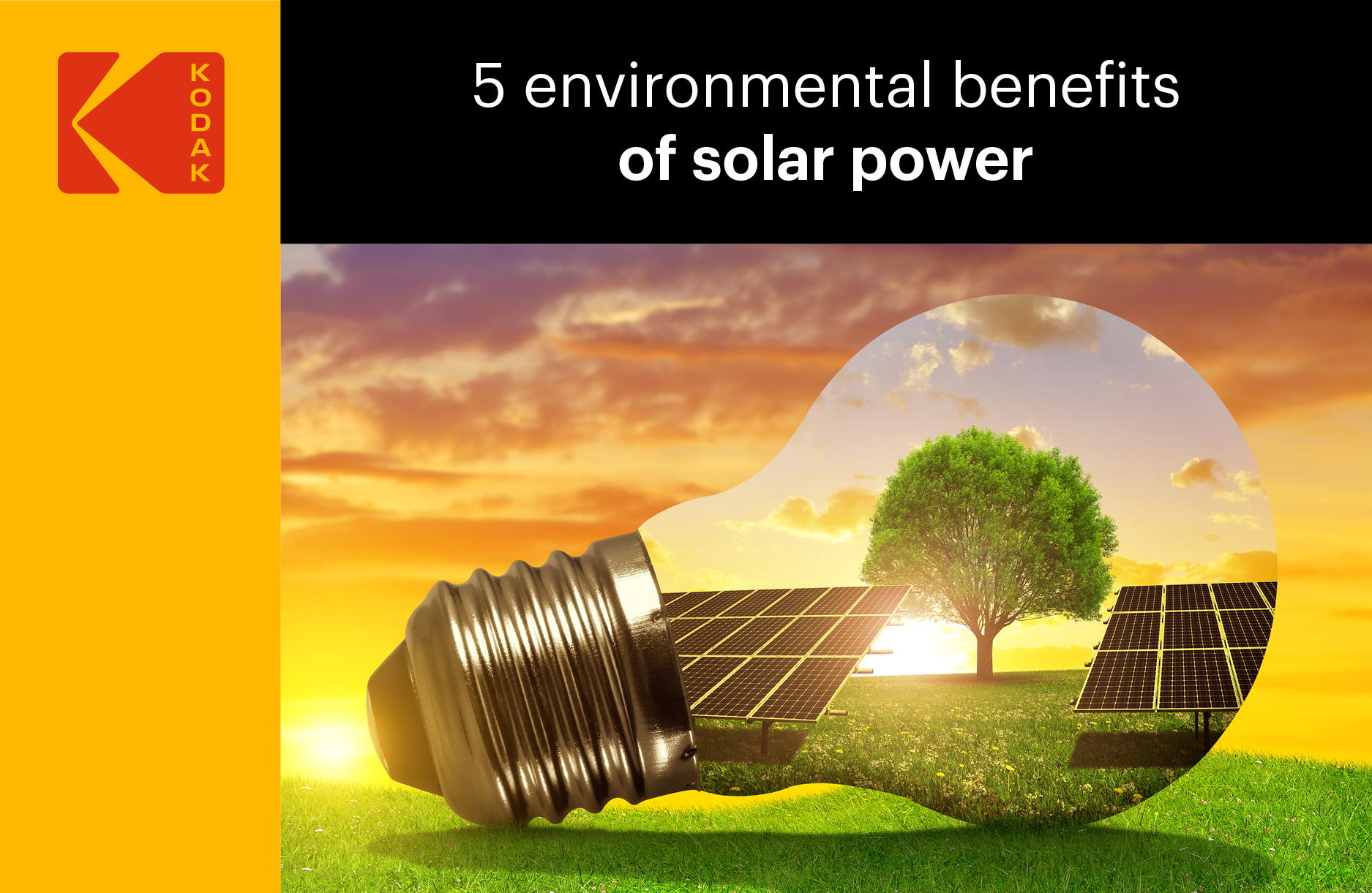Nowadays, most people know that solar power helps mitigate ever-worsening climate change — and that is certainly one of its biggest environmental benefits. However, there are many more ways that generating electricity from the sun’s rays can help the planet.
Without the pollution that comes with non-renewable energy, solar-powered systems can help preserve Earth’s precious natural resources and provide a higher standard of living for future generations and wildlife — setting the foundations for a happier, healthier world.
Intrigued? Here are some examples of the long-term environmental benefits of solar power to inspire you to make the switch…
1. Lower carbon emissions
Carbon dioxide — a greenhouse gas released when fossil fuels, such as coal, are burned for energy — is the main cause of global warming, and none is emitted when solar panels are used to cover home and business owners’ electricity consumption.
In fact, whilst coal power produces an average of 820 grams of CO2 per kWh of electricity generated over its lifetime (including manufacturing and operation), rooftop solar is only responsible for around 41 grams per kWh. That is 20 times less than South Africa’s primary energy source — and this figure will only increase as solar product manufacturing processes advance.
So, when you trade your reliance on the national grid for a PV system, you can reduce your carbon footprint and help mitigate global warming. It is a win-win scenario!
2. Reduced water consumption
As droughts become increasingly common and global populations grow, there is less fresh water to go around — making the amount of this vital resource that energy systems use a key concern. Fortunately, whilst fossil fuels drain water supplies, solar power does not.
Take coal plants as an example. They use boiling water to create steam that spins a turbine and generates electricity. More water is then used to cool the steam once done. Meanwhile, PV systems only use water during the manufacturing process. Plus, solar-powered water pumping systems can even provide a reliable water supply to remote and drought-stricken communities.
The takeaway? Swap to solar power and you can help combat water scarcity today — and prevent the unnecessary consumption of limited water resources in years to come.
3. Land preservation
No South African will be a stranger to how much space typical power stations can take up, with coal plants occupying areas across the country where trees and vegetation would otherwise grow. But that does not need to be the case with PV systems.
Whether you are simply covering a modest property’s energy consumption or need to generate enough renewable energy to power an entire warehouse or office building, you can achieve your energy supply requirements by installing solar panels on your rooftop. No drastic land clearing or irreversible damage to natural landscapes required!
Just imagine if all the coal-fired power stations were replaced by rooftop PV systems — there would be so much more greenery soaking up CO2 emissions…
4. Improved air quality
With solar power, there is no need to worry about the release of dangerous substances like sulphur dioxide, nitrogen oxides and fine particulate matter — all of which are unavoidable with traditional power plants, but not with PV systems.
As such, when you end your reliance on South Africa’s national grid, you are no longer contributing to the pollution of our atmosphere — linked with a heightened risk of several non-contagious diseases like cancer, stroke, heart attacks and problems like chronic headaches, pneumonia and other respiratory conditions.
Instead, you will be playing a part in improving air quality and protecting your and other peoples’ well-being, which is crucial in creating healthy communities!
5. Support for ecosystems
Whilst traditional power plants can seriously harm biodiversity, disrupting wildlife through noise, artificial lighting and, of course, pollution and habitat loss, you may be surprised to learn that PV systems can actually support the country’s ecosystems.
As well as helping restore the clean air and greenery organisms need to flourish, solar power can promote rewilding. For instance, the areas in and around ground-mounted solar plants can act as a nature reserve. They just need to be filled with the right hedgerows and wildflower meadows to benefit all sorts of species — something researchers have coined ecovoltaics.
Thus, even if you opt for non-rooftop solar power, you can still reap the benefits of renewable energy knowing that you are playing a part in protecting the planet and all its inhabitants.
If you are ready to transition to solar power, why not browse the KODAK Solar Products brochure? In this document, you can get a sense of which PV system components you can choose from before you find a local installer.




